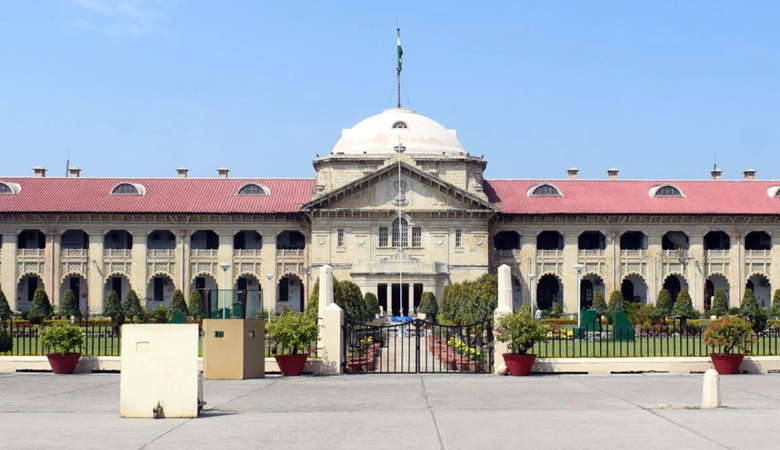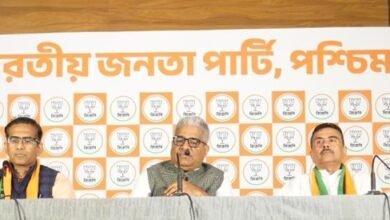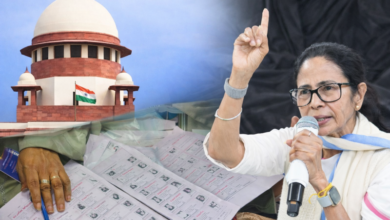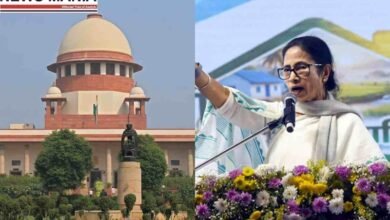Allahabad High Court Denies Bail in Illegal Conversion Case, Emphasizes Limits on Proselytization

News Mania Desk/Agnibeena Ghosh/11th July 2024
The Allahabad High Court recently denied bail to an individual accused of participating in illegal religious conversions, underscoring the constitutional boundaries regarding religious freedom. The court emphasized that while citizens have the right to freely profess, practice, and propagate their religion, this does not extend to a collective right to proselytize or convert others to one’s faith.
Justice Rohit Ranjan Agarwal delivered this ruling while rejecting the bail plea of Shriniwas Rav Nayak, who had been charged under sections 3 and 5(1) of the Uttar Pradesh Prohibition of Unlawful Conversion of Religion Act, 2021. Nayak, a resident of Maharajganj, was accused of involvement in a conversion attempt that allegedly targeted members of the Scheduled Castes community.
The court highlighted that the Constitution guarantees individuals the right to freedom of conscience, which includes the liberty to choose, practice, and express their religious beliefs. However, this individual right cannot be interpreted as a collective right to convert others to one’s religion. “The right to religious freedom belongs equally to the person converting and the individual sought to be converted,” the court stated.
The case against Nayak stemmed from an incident on February 15, 2024, when the informant was invited to the house of Vishwanath, where many villagers, predominantly from the Scheduled Castes, had gathered. Vishwanath’s brother Brijlal, the accused Shriniwas, and another individual named Ravindra were present. It was alleged that the group urged the informant to abandon Hinduism and convert to Christianity, promising relief from pain and a better life. While some villagers accepted Christianity and began praying, the informant escaped and reported the incident to the police.
Nayak’s counsel argued that he had no involvement in the alleged conversion activities and claimed that Nayak was merely a domestic help for one of the co-accused, a resident of Andhra Pradesh, and had been falsely implicated. Furthermore, it was contended that no individual who converted to Christianity had lodged a complaint against Nayak.
Contrarily, the state counsel maintained that a case under the 2021 anti-conversion Act was valid against Nayak. The state argued that Nayak had traveled to Maharajganj and actively participated in the illegal conversion activities, thereby violating the law.
The court noted that Section 3 of the Uttar Pradesh Prohibition of Unlawful Conversion of Religion Act, 2021, explicitly prohibits conversions based on misrepresentation, force, fraud, undue influence, coercion, and allurement. Given the allegations against Nayak, the court observed that the informant was coerced into considering conversion, which was prima facie evidence of an ongoing conversion program. This involvement, particularly targeting a vulnerable community, was sufficient grounds to deny bail.
In its decision, the court reaffirmed the limitations of religious freedom concerning proselytization. The ruling clarified that while individuals are free to practice and propagate their religion, the act of converting others must not involve coercion or undue influence. This decision is a significant affirmation of the law’s stance against forced or fraudulent conversions and reinforces the legal framework protecting individuals’ rights to choose their faith without external pressure.
This ruling by the Allahabad High Court sends a clear message about the limits of religious conversion activities, ensuring that the rights of individuals are safeguarded against coercive practices. The emphasis on maintaining the integrity of individual choice in matters of faith aligns with the broader principles of justice and equality enshrined in the Indian Constitution.






